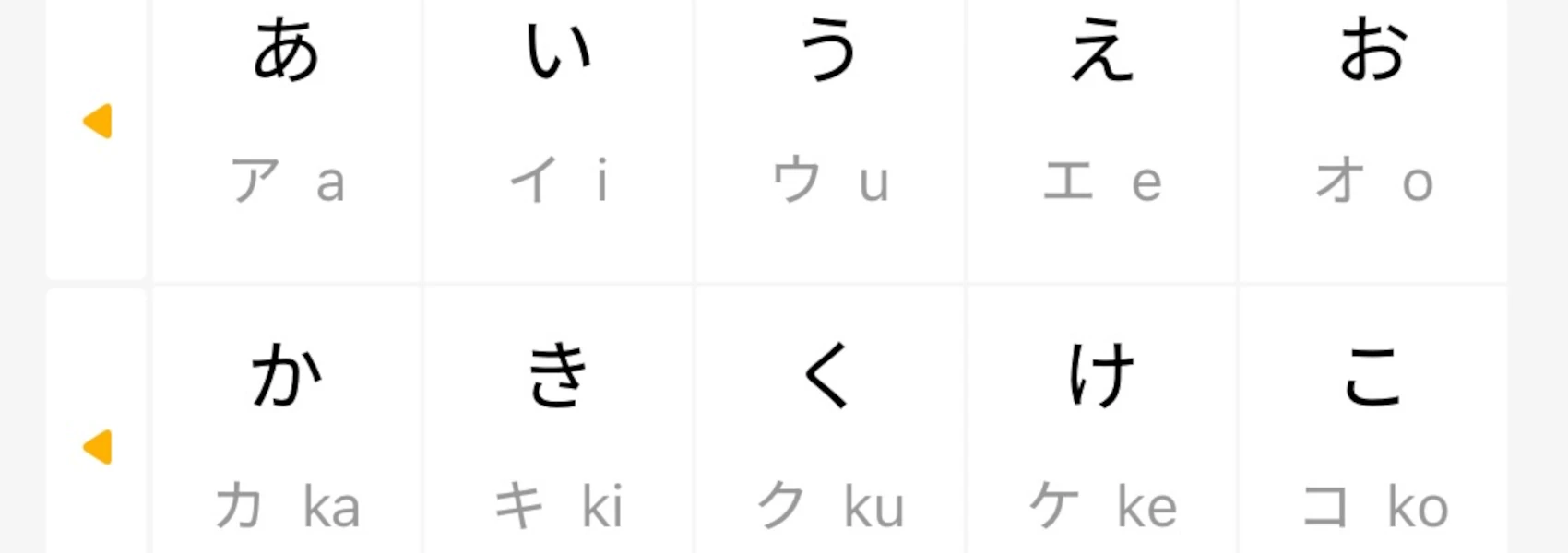Three days into my week in Tokyo I got tired of being illiterate. Four or five days into it, I figured out what to do about: I would reverse-engineer the accessible syllabic writing system from train station announcements. Despite my passion for decoding secret writing and dedication to sounding out train station names, it was not an efficient approach and I did not manage to learn how to read hiragana in the remaining three days.
I really thought I could learn hiragana in just a few days, and maybe I could have if that was all I did, but I was also pretty busy, ya know, exploring Tokyo as hard as I could, mostly by getting lost near train stations and eating snacks.
All my frustrating experiences in Tokyo were due to not being able to read signs or talk to people, and my favorite experiences included being able to decode meaning--be it artistic, social, or literal--or talk to people even if only in rudimentary ways. Despite Japanese not being related to other languages I know--so no free vocabulary to pick up like I can do with European languages--I managed to start picking up words and phrases within that week into my passive vocabulary just from hearing people say the same thing over over, and yes, from the station announcements. It was thrilling! Learning a new language in context feels like solving a puzzle and the more you solve it, the more puzzle becomes available to solve.
How hard can it be? #
So I came home with a violent desire to learn Japanese. How hard can it be? I mean, actually, that's one of the questions I wanted to answer: is Japanese all that hard or are monolingual English speakers wimps? I am still figuring that out but I'm starting to think it's the latter. Politeness level inflection and grammar changes probably seem scary if you've never had to deal with a highly inflected language with grammatical gender and a boatload of cases like Polish or Russian or Ancient Greek.
It's been about two weeks and I've mostly learned hiragana. I've been using Anki[1] flashcards to help me memorize them. I can sound out words moderately reliably, if they're written just in hiragana, like they are in material written for kids. It's been fun looking at some photos I took in Japan and being able to read what the signs say now. I kept taking photos of signs and using machine translation to read them, so I have a lot of those things. One made me kind of sad though. It was a sign that said "yaki soba" and machine translation gave it as "fried noodles" which at the time I was like, yeah, but what kind? Could this be yaki soba? It was yaki soba, I now know, and I didn't eat it even though it was right there.
At the same time, I've started working on beginner vocabulary and grammar, using LingoDeer, a language learning app that's quite good. It teaches grammar along with words and phrases so you can actually understand the principles. So far, I haven't found anything in Japanese grammar that freaks me out. Subject object verb sentence structure feels fine, especially given the nifty particles you use to indicate which item is the subject. Pro-drop feels fine. And that thing where Japanese women seem to speak at a higher pitch than might be natural? So, I have a naturally very high-pitched speaking voice. I mostly speak at the bottom of my range and I still sound high-pitched to people. When I'm imitating the Japanese spoken phrases in pronunciation, I literally just relax into my natural range. Strangely, Japanese just feels very comfortable as a spoken language.
Food-motivated #
My goal and my motivation is simple. I loved Tokyo and I want to go again. I did not love feeling lost and isolated. By the next time I go, I want to be able to:
- Read the signs on the street so I can find the good snacks
- Understand the spoken transit announcements
- Read and understand the safety and routing information
- Find my way in a grocery store but also to the grocery store
- Order food at a restaurant without an English menu or picture menu
- Have the most basic polite small talk
It's likely that in the best case scenario, it'll be a year before I make it to Tokyo again. And I think in a year, I can get to that level of Japanese.
In the meantime, there are two other writing systems to learn. There's katakana, which is another syllabary that uses all the same syllables but different visual signs. And then there's kanji, which is logographic, and, you know, I'm not going to explain it because I don't understand how it works well enough to explain it. Let's just say kanji involves memorizing hundreds to thousands of unique visual signs, and that ordinary written Japanese uses all three writing systems in combination.
But I'm not going to worry too much about kanji yet. That's how you get hung up and freaked out and stop. Little Japanese kids can go out and run errands in the city before they've learned kanji, and that's the level I aspire. That, and navigating through a grocery store. How hard can it be?
Don't tell me. I'm going to keep assuming it's perfectly manageable until it's too late to stop learning because of all the sunk costs.
Anki is a digital flashcard system that makes it easy to use spaced repetition to memorize things. Anki is kind of annoying to set up and about as friendly as Linux, but damn it if hasn't made language learning and memorization easier. Getting into Anki is an occupational hazard of wanting to learn a new language, kind of like getting really into the details of masking tape varieties when you get into watercoloring. If you know, you know. ↩︎
